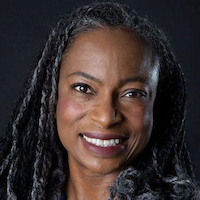Yes, I am pleased that President Joe Biden intends to nominate and confirm a black woman on the Supreme Court to fill retiring Justice Breyer’s seat.
The negative response to this news is unsurprising. Examples of the negative response include a national survey showing that three-fourths of Americans think “all possible candidates should be considered;” Mississippi Sen. Roger Wicker’s comment that a black woman justice would be the “beneficiary of affirmative action,” a belief likely held by many; and ironically that the Supreme Court will consider this term and potentially change the law on the issue of whether race is an invalid consideration in higher-education admission decisions.
These are common responses to black female success and advancement.
Presidents have nominated few black women to U.S. posts. Pew research reports that only 70 of the 3,843 people who have served as federal judges have been black women, less than 2%.
Remember how Lani Guinier couldn’t even get President Bill Clinton’s nomination for assistant attorney general? A GOP media campaign discredited the Harvard/Yale graduate, Harvard Law professor, former federal clerk, special assistant to the attorney general and head of the NAACP Legal Defense Fund Voting Rights project where she won 99% of her cases, instead painting her as a “quota queen” — a cross between a welfare queen and affirmative action nominee. Guinier was patently against quotas and was as qualified as any white man for the post.
Pauli Murray should have been a Supreme Court justice. She wrote to President Richard Nixon in 1971 to suggest herself for nomination to the court. Murray understood that a positive response was unlikely but nonetheless noted in her letter that black women were the nation’s largest minority group, that the presence of a woman on the court would make it more representative of American views and that she was qualified. Murray didn’t go to Harvard because it didn’t accept women until 1950. Instead, she attended Hunter College, graduated first in her class from Howard Law and earned a doctorate from Yale. Murray’s qualifications were known, she framed the successful argument made in Brown v. Board, co-authored Reed v. Reed with Justice Ruth Bader Ginsburg, co-founded the National Organization of Women, and served as a member of the National Board of American Civil Liberties and the Equal Employment Opportunity Commission.
When black women do get nominated, their confirmations take longer than average. Constance Baker Motley, the first black woman federal court judge, Kristen M. Clarke, now head of the DOJ Civil Rights Division, Chiquita Brooks-LaSure, head of Health and Human Services Centers for Medicare and Medicaid and Ketanji Brown Jackson, District Circuit Court Appeals judge now on the short list for Breyer’s seat, all suffered significant delays before confirmation. Some research shows that the Senate perceives black women candidates as too partisan and others that there is some “know your place” aggression at play. I would argue that there is also some “women are not qualified and black women are patently unqualified” sentiment at work.
Nomination delays sometimes fail nominations as nominations have to be renewed each session.
Black women are qualified to be seated on the Supreme Court. The argument that they would be beneficiaries of affirmative action is patently ridiculous.
And yes, “all potential candidates should be considered.” That is what is happening now. Biden is taking this opportunity to seat a black women justice. Further consideration lies ahead: for the first Native nominee, first Asian, first “public school” nominee — someone whose academic pedigree is not from the same three schools the current justices attended.
I’m thrilled that Biden will nominate a black woman to the Supreme Court.
It is high time.
• • •• • •
 Adrienne Jones, J.D., Ph.D., is an assistant professor of political science and the director of the prelaw program at Morehouse College.
Adrienne Jones, J.D., Ph.D., is an assistant professor of political science and the director of the prelaw program at Morehouse College. This op-ed was originally published by the Telegraph-Herald.














